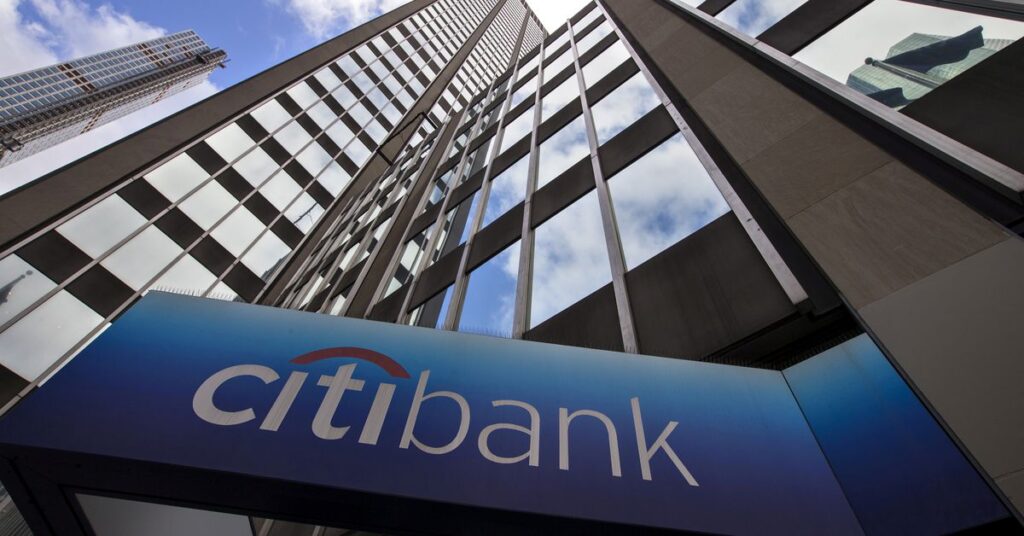[1/3]A view of the exterior of the Citibank corporate headquarters in New York, New York, U.S. May 20, 2015. REUTERS/Mike Segar//File Photo
July 13 (Reuters) – Analysts are cautiously optimistic as second-quarter reporting season rolls out amid this year’s rally in U.S. stocks fueled by optimism over artificial intelligence (AI) and a resilient U.S. economy.
Strategists expect profit at S&P 500 (.SPX) companies to have dropped 6.4% in the second quarter from a year earlier, according to Refinitiv data.
Several analysts expect companies to surpass the beaten-down estimates but some have warned this may not be enough to sustain gains in equities seen so far in 2023.
The tech-heavy Nasdaq (.IXIC) has surged 33% this year due to a scorching rally in AI-linked stocks versus a 16% advance in the S&P 500.
Morgan Stanley:
Much of the stock market rally this year has been driven by a price-to-earnings expansion, signaling investors likely remain unconcerned about near-term earnings pressure.
Still, “better-than-feared” earnings are not going to be good enough in Q2 considering stocks have become more expensive, the strategists say.
Earnings are unlikely to disappoint given low expectations, but adds companies would need to hike profit forecasts to support valuations, which are under threat from lower liquidity.
Goldman Sachs:
Companies will likely be able to beat or surpass “the low bar” set for the second quarter. However, GS believes consensus earnings estimates for 2024 are too optimistic, pointing to concerns about the ability of firms to maintain profit margins at a time when inflation is cooling.
AI is a big focus this earnings and guidance from companies such as Nvidia (NVDA.O) will help investors identify long-term beneficiaries, per the Wall Street bank.
BlackRock:
Better-than-expected earnings have not been a major driver of returns this year, given the AI-fueled rally, says Laura Cooper, senior macro strategist for iShares EMEA at BlackRock.
Cooper cautions against a broad re-allocation to risk assets, saying there are only certain sectors such as energy and healthcare where estimates have factored in effects of economic damage.
Deutsche Bank:
While earnings have historically been favorable for equities, the extent of the rally depends upon equity positioning going into the reporting season.
This suggests a “muted market reaction” to Q2 earnings is likely, given robust gains in stocks since the first quarter and an “overweight” equity positioning, the bank says.
Still, strategists at the German bank say there is a chance this season could push equities higher, as it expects Q2 to mark a second straight quarter of sequential earnings growth which could change emerging expectations of an impending earnings recession.
Wells Fargo:
Investors are “discounting the effects of higher-for-longer rates on earnings”, which is a mistake.
Scott Wren, senior global market strategist at Wells Fargo Investment Institute, believes the Fed is not done raising interest rates and earnings for S&P 500 companies are likely be lower this year than in 2022, with the economy slipping into a recession.
BofA:
Earnings pressure is likely to bottom out in Q2 and margins for most sectors to stabilize going forward. The brokerage says companies are likely to highlight improved business conditions after a trough in the March-April period.
This bodes well for economically sensitive sectors, according to BofA, which forecasts a rally in cyclical stocks in the latter half of the year.
Citigroup
While positive surprises are likely, particularly from technology and industrial sectors, there is ample reason for caution as investors seem “ripe to punish stocks that do not exceed expectations.”
As a result, highly crowded stocks, such as major AI names, are most at risk this earnings season, according to the bank.
Reporting by Amruta Khandekar and Shreyashi Sanyal in Bengaluru; Editing by Sriraj Kalluvila
: .


